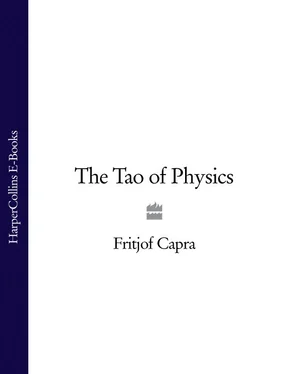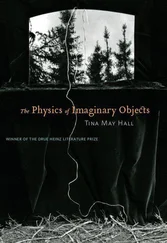The natural world, on the other hand, is one of infinite varieties and complexities, a multidimensional world which contains no straight lines or completely regular shapes, where things do not happen in sequences, but all together; a world where—as modern physics tells us—even empty space is curved. It is clear that our abstract system of conceptual thinking can never describe or understand this reality completely. In thinking about the world we are faced with the same kind of problem as the cartographer who tries to cover the curved face of the Earth with a sequence of plane maps. We can only expect an approximate representation of reality from such a procedure, and all rational knowledge is therefore necessarily limited.
The realm of rational knowledge is, of course, the realm of science which measures and quantifies, classifies and analyses. The limitations of any knowledge obtained by these methods have become increasingly apparent in modern science, and in particular in modern physics which has taught us, in the words of Werner Heisenberg, ‘that every word or concept, clear as it may seem to be, has only a limited range of applicability.’ 1
For most of us it is very difficult to be constantly aware of the limitations and of the relativity of conceptual knowledge. Because our representation of reality is so much easier to grasp than reality itself, we tend to confuse the two and to take our concepts and symbols for reality. It is one of the main aims of Eastern mysticism to rid us of this confusion. Zen Buddhists say that a finger is needed to point at the moon, but that we should not trouble ourselves with the finger once the moon is recognized; the Taoist sage Chuang Tzu wrote:
Fishing baskets are employed to catch fish; but when the fish are got, the men forget the baskets; snares are employed to catch hares; but when the hares are got, men forget the snares. Words are employed to convey ideas; but when the ideas are grasped, men forget the words. 2
In the West, the semanticist Alfred Korzybski made exactly the same point with his powerful slogan, The map is not the territory.’
What the Eastern mystics are concerned with is a direct experience of reality which transcends not only intellectual thinking but also sensory perception. In the words of the Upanishads ,
What is soundless, touchless, formless, imperishable,
Likewise tasteless, constant, odourless,
Without beginning, without end, higher than the great, stable—
By discerning That, one is liberated from the mouth of death. 3
Knowledge which comes from such an experience is called ‘absolute knowledge’ by Buddhists because it does not rely on the discriminations, abstractions and classifications of the intellect which, as we have seen, are always relative and approximate. It is, so we are told by Buddhists, the direct experience of undifferentiated, undivided, indeterminate ‘suchness’. Complete apprehension of this suchness is not only the core of Eastern mysticism, but is the central characteristic of all mystical experience.
The Eastern mystics repeatedly insist on the fact that the ultimate reality can never be an object of reasoning or of demonstrable knowledge. It can never be adequately described by words, because it lies beyond the realms of the senses and of the intellect from which our words and concepts are derived. The Upanishads say about it:
There the eye goes not,
Speech goes not, nor the mind.
We know not, we understand not
How one would teach it. 4
Lao Tzu, who calls this reality the Tao , states the same fact in the opening line of the Tao Te Ching : The Tao that can be expressed is not the eternal Tao. ’ The fact—obvious from any reading of the newspapers—that humanity has not become much wiser over the past two thousand years, in spite of a prodigious increase in rational knowledge, is ample evidence of the impossibility of communicating absolute knowledge by words. As Chuang Tzu said, ‘If it could be talked about, everybody would have told their brother.’ 5
Absolute knowledge is thus an entirely non-intellectual experience of reality, an experience arising in a non-ordinary state of consciousness which may be called a ‘meditative’ or mystical state. That such a state exists has not only been testified by numerous mystics in the East and West but is also indicated by psychological research. In the words of William James:
Our normal waking consciousness, rational consciousness as we call it, is but one special type of consciousness, whilst all about it, parted from it by the filmiest of screens, there lie potential forms of consciousness entirely different. 6
Although physicists are mainly concerned with rational knowledge and mystics with intuitive knowledge, both types of knowledge occur in both fields. This becomes apparent when we examine how knowledge is obtained and how it is expressed, both in physics and Eastern mysticism.
In physics, knowledge is acquired through the process of scientific research which can be seen to proceed in three stages. The first stage consists in gathering experimental evidence about the phenomena to be explained. In the second stage, the experimental facts are correlated with mathematical symbols and a mathematical scheme is worked out which interconnects these symbols in a precise and consistent way. Such a scheme is usually called a mathematical model or, if it is more comprehensive, a theory. This theory is then used to predict the results of further experiments which are undertaken to check all its implications. At this stage, physicists may be satisfied when they have found a mathematical scheme and know how to use it to predict experiments. But eventually, they will want to talk about their results to non-physicists and will therefore have to express them in plain language. This means they will have to formulate a model in ordinary language which interprets their mathematical scheme. Even for the physicists themselves, the formulation of such a verbal model, which constitutes the third stage of research, will be a criterion of the understanding they have reached.
In practice, of course, the three stages are not neatly separated and do not always occur in the same order. For example, a physicist may be led to a particular model by some philosophical belief he (or she) holds, which he may continue to believe in, even when contrary experimental evidence arises. He will then—and this happens in fact very often—try to modify his model so that it can account for the new experiments. But if experimental evidence continues to contradict the model he will eventually be forced to drop it.
This way of basing all theories firmly on experiment is known as the scientific method and we shall see that it has its counterpart in Eastern philosophy. Creek philosophy, on the other hand, was fundamentally different in that respect. Although Creek philosophers had extremely ingenious ideas about nature which often come very close to modern scientific models, the enormous difference between the two is the empirical attitude of modern science which was by and large foreign to the Creek mind. The Greeks obtained their models deductively from some fundamental axiom or principle and not inductively from what had been observed. On the other hand, of course, the Creek art of deductive reasoning and logic is an essential ingredient in the second stage of scientific research, the formulation of a consistent mathematical model, and thus an essential part of science.
Rational knowledge and rational activities certainly constitute the major part of scientific research, but are not all there is to it. The rational part of research would, in fact, be useless if it were not complemented by the intuition that gives scientists new insights and makes them creative. These insights tend to come suddenly and, characteristically, not when sitting at a desk working out the equations, but when relaxing, in the bath, during a walk in the woods, on the beach, etc. During these periods of relaxation after concentrated intellectual activity, the intuitive mind seems to take over and can produce the sudden clarifying insights which give so much joy and delight to scientific research.
Читать дальше












